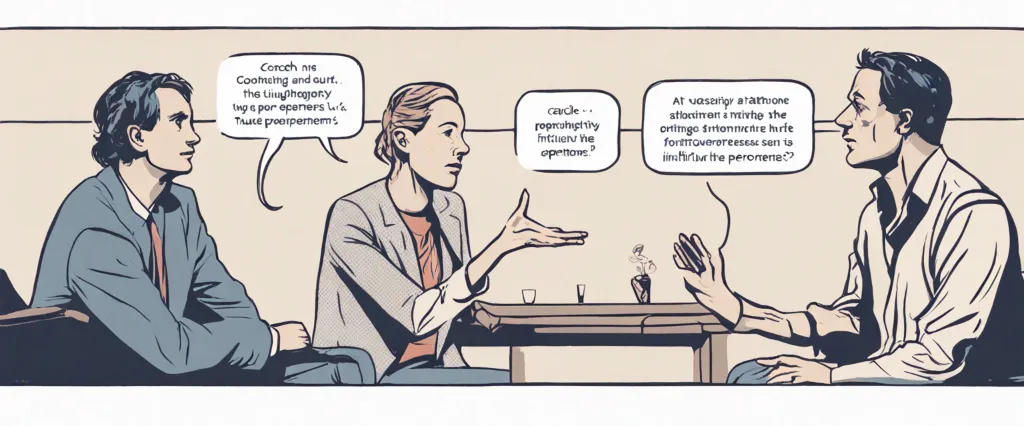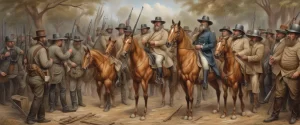——Coaching for Performance by John Whitmore & The Fifth Discipline by Peter M. Senge

In the realm of personal and professional development literature, coaching and organizational learning are two prominent themes that have captured the attention of countless individuals seeking growth and continuous improvement. Among the myriad of books available on these subjects, two seminal works stand out: “Coaching for Performance” by John Whitmore and “The Fifth Discipline” by Peter M. Senge.
Both Whitmore and Senge have made significant contributions in their respective fields, exploring the intricacies of coaching and organizational learning. Coaching for Performance” delves into the art of coaching and its practical applications, encouraging individuals to unlock their potential and flourish. On the other hand, “The Fifth Discipline” explores the concept of a learning organization, urging leaders to cultivate a culture of continuous learning and collaborative problem-solving within their organizations.
Understanding the distinctive approaches advocated by these two esteemed authors on coaching and organizational learning is paramount, as their ideas can profoundly impact personal growth and organizational effectiveness. This comparative study aims to delve into the similarities and divergences between “Coaching for Performance” and “The Fifth Discipline,” unraveling their underlying theories, methodologies, and real-world implications.
Through an in-depth analysis of the fundamental concepts, frameworks, and case studies presented in both works, this study seeks to shed light on how coaching and organizational learning can be integrated into meaningful and transformative practices. By studying the practical applications and theoretical foundations in each book, we will gain valuable insights on how these concepts can drive individual and collective growth, foster innovation, and enhance overall organizational performance.
Moreover, this comparative study aims to evaluate the efficacy of these approaches, examining their strengths, limitations, and potential synergies. The exploration of such critical aspects will enable us to identify how coaching and organizational learning can complement, reinforce, or challenge one another, ultimately broadening our perspectives and enhancing our ability to navigate and shape the dynamic landscape of personal and organizational development.
As we embark on this comparative journey, it is crucial to acknowledge the unique contributions made by both Whitmore and Senge, recognizing their collective impact on individuals, organizations, and society as a whole. By exploring the depths of their works, we aim to unravel the transformative power hidden within their pages and unlock the potentials of coaching and organizational learning.
Through this comprehensive comparative study, we hope to establish a solid foundation for understanding these two works, shedding light on their similarities and differences, and cultivating a deeper appreciation for their impact on personal, professional, and organizational transformation.
Brief Summary of Two Books
Coaching for Performance by John Whitmore
Coaching for Performance” by John Whitmore is a groundbreaking book that revolutionizes the way we perceive coaching in various aspects of our lives. Whitmore presents coaching as a powerful tool that helps individuals unlock their potential and achieve optimal performance.
The book explores the core principles and techniques of coaching, emphasizing the importance of establishing a strong rapport and trust between the coach and the individual being coached. Whitmore explains how coaching is not about giving advice or solving problems, but rather helping individuals gain clarity, set meaningful goals, and find their own solutions.
Whitmore delves into the GROW model, a framework he developed that guides the coaching process. GROW stands for Goals, Reality, Options, and Will, providing a step-by-step approach for coaches to help individuals create actionable plans and take responsibility for their own progress.
Throughout the book, numerous case studies and real-life examples illustrate the transformative power of coaching. Whitmore demonstrates how coaching can be applied in various settings, such as business organizations, sports teams, and personal development. The book also addresses potential challenges and obstacles that coaches may face, providing strategies to overcome them.
“Coaching for Performance” is not just a guide for professional coaches, but also a valuable resource for managers, leaders, teachers, and individuals seeking personal growth and self-improvement. It highlights the importance of active listening, effective questioning, and providing constructive feedback to facilitate the coaching process.
Overall, Whitmore’s book offers a comprehensive understanding of coaching, empowering readers to utilize coaching techniques to improve performance, foster self-awareness, and create lasting change in both their personal and professional lives.
The Fifth Discipline by Peter M. Senge
The Fifth Discipline” by Peter M. Senge is a management and organizational development book that explores the concept of learning organizations and their impact on businesses. Senge argues that in today’s rapidly changing world, organizations must adopt a holistic approach to learning and development to thrive.
Senge introduces the concept of five disciplines essential for building a learning organization: personal mastery, mental models, shared vision, team learning, and systems thinking. These disciplines create a foundation for organizations to adapt to change, improve productivity, and foster innovation.
The author emphasizes the importance of personal mastery, encouraging individuals within an organization to strive for continuous self-improvement and learning. Mental models refer to the underlying assumptions and beliefs that individuals hold and impact their decision-making. Senge suggests that by challenging these mental models and fostering openness to new perspectives, organizations can overcome barriers to change.
Shared vision promotes a collective sense of purpose and direction, acting as a driving force for collaboration and commitment. Team learning emphasizes the importance of effective communication, cooperation, and reflection among team members to enhance collective intelligence. Lastly, systems thinking encourages organizations to view themselves as interconnected systems and understand the complex relationships between different elements and how they impact the whole.
Throughout the book, Senge provides practical examples, case studies, and exercises to help readers understand and apply the principles of the five disciplines. He highlights the role of leadership, stating that leaders have the responsibility to create a learning environment and empower employees.
“The Fifth Discipline” offers insights into transforming organizations into learning entities that adapt and thrive in a rapidly changing world. Senge’s book serves as a roadmap for organizations to recognize and overcome their limitations, fostering a culture of continuous learning, innovation, and growth.
Comparison between Two Books

Similarities in Management
Both “Coaching for Performance” by John Whitmore and “The Fifth Discipline” by Peter M. Senge discuss various aspects of management and share some similarities.
1. Growth-oriented approach: Both books emphasize the importance of adopting a growth-oriented mindset in managing individuals and organizations. They argue that a manager’s role is not only to achieve short-term goals but also to foster long-term development and improvement.
2. Focus on learning and feedback: The authors stress the significance of continuous learning and feedback in effective management. They highlight the importance of providing regular feedback, facilitating learning opportunities, and creating a culture of continuous improvement within the organization.
3. Systems thinking: “The Fifth Discipline” explicitly delves into systems thinking, while “Coaching for Performance” touches on it indirectly. Both books emphasize the interconnectedness and interdependence of various components within an organization. They advocate for understanding the broader context and identifying systemic patterns to effectively manage and create positive change.
4. Emphasis on empowerment and autonomy: Both books underline the significance of empowering individuals and promoting autonomy within the organizational structure. They argue that giving people the freedom to make decisions and take ownership of their work leads to higher engagement, motivation, and better overall performance.
5. Collaboration and teamwork: Both authors emphasize the importance of collaboration and teamwork in management. They believe that fostering strong team dynamics, effective communication, and shared vision promotes better performance, innovation, and overall organizational success.
6. Emphasis on personal development: Both books acknowledge the importance of personal development and growth for managers and employees alike. They argue that self-awareness, continuous learning, and personal development are essential elements of effective management.
7. Focus on long-term sustainability: Both authors recognize the importance of considering long-term sustainability and organizational viability. They highlight the need for managers to think beyond short-term gains and focus on creating sustainable practices, nurturing organizational culture, and adapting to changes in the external environment.
In summary, both “Coaching for Performance” and “The Fifth Discipline” emphasize the importance of adopting a growth-oriented, learning-focused approach to management. They stress the significance of systems thinking, empowerment, collaboration, personal development, and long-term sustainability as essential elements for effective managerial practices.
Divergences in Management
Coaching for Performance by John Whitmore and The Fifth Discipline by Peter M. Senge are both highly acclaimed books that delve into the realms of personal and organizational development. While they share some similarities in their approach to improving individual and collective performance, they also present a divergence in their perspectives on management.
In Coaching for Performance, Whitmore emphasizes the importance of coaching as a leadership style rather than a tool for performance management alone. He contends that managers should adopt a coaching mindset to empower their employees, develop their skills, and enhance their potential. Whitmore advocates for creating a culture of trust and open communication, where managers act as facilitators rather than authoritative figures. This approach aligns with the principles of transformational leadership and focuses on fostering autonomy, growth, and self-awareness in individuals.
On the other hand, in The Fifth Discipline, Senge takes a broader view of management and places it within the context of systems thinking. He postulates that organizations are complex systems comprised of interconnected parts, and that effective management entails understanding and harnessing these interrelationships. Senge argues that managers should be systems thinkers, able to recognize patterns, identify leverage points, and intervene strategically to improve the overall performance of the system. This perspective emphasizes foresight, holistic understanding, and long-term planning.
The key divergence arises from their differing recommendations on the role of managers in the organizational hierarchy. Whitmore’s Coaching for Performance promotes a more egalitarian dynamic, where managers are encouraged to coach, guide, and support their subordinates rather than impose their authority. The focus is on nurturing an environment that encourages personal growth and self-directed learning. In contrast, Senge’s The Fifth Discipline recognizes the inherent complexity of organizations and places a premium on the expertise and training of managers. He highlights the need for managers to be skilled in systems thinking and to assume a more directive role, shaping the collective learning and functioning of the organization.
In summary, Coaching for Performance by John Whitmore advocates for a coaching leadership style that empowers individuals, promotes self-growth, and builds trust within the organizational structure. On the other hand, The Fifth Discipline by Peter M. Senge emphasizes systems thinking and the role of managers as strategic interveners in complex organizational systems. While both books offer valuable insights into personal and organizational development, they diverge in their recommendations for management approaches.

Conclusion
Both “Coaching for Performance” by John Whitmore and “The Fifth Discipline” by Peter M. Senge are highly regarded books in their respective fields. To determine which one may be more worthy of reading would depend on your specific interests and goals.
“Coaching for Performance” is a book that focuses on the principles and practice of effective coaching in both professional and personal settings. It provides practical techniques and insights for coaches, managers, and leaders to enhance performance and overall growth. If you are interested in developing your coaching skills or improving your ability to bring out the best in others, this book would be a valuable read.
“The Fifth Discipline” is a book that explores the concept of the learning organization and the importance of systems thinking. It delves into methods for understanding and managing complex systems within organizations, emphasizing the need for continuous learning and adaptation. If you are interested in organizational development, leadership, and creating a culture of learning, this book would be a valuable read.
Ultimately, the choice between these two books depends on your personal or professional focus. If you are more interested in enhancing individual performance and coaching skills, “Coaching for Performance” may be the more appropriate choice. On the other hand, if your focus is on organizational learning and systems thinking, “The Fifth Discipline” would be a more suitable option.


